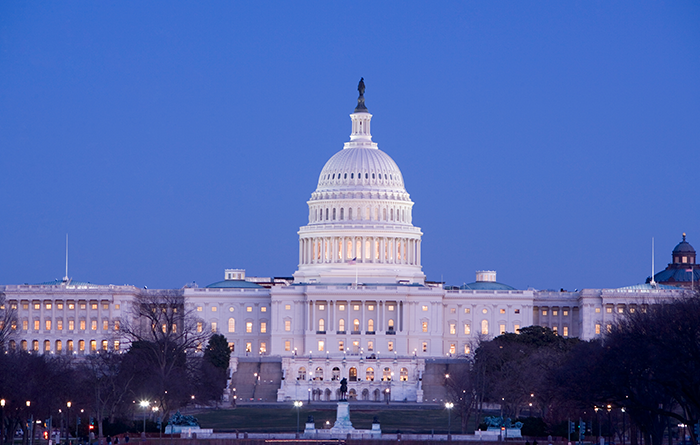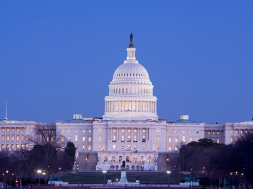
Washington News Brief
By Sharon H. Bob, Ph.D., Higher Education Specialist, Powers Pyles Sutter and Verville, PC
ED releases FY 2017 Official Cohort Default Rates
On Sept. 28, 2020, the Department of Education released the FY 2017 Official Cohort Default Rate (CDR) notification packages to all eligible and foreign schools only. The rates were publicly released on Sept. 30, 2020.
The Electronic Announcement is found at: https://ifap.ed.gov/electronic-announcements/092820FY2017OfficialCDRDistributedSept282020
On Sept. 30, 2020, the Department released data on the three-year FY 2017 Official Cohort Default Rates, which indicated that the national rate of 9.7 percent is slightly reduced from the three-year 10.1 percent rate for the FY 2016 national Official Cohort Default Rate. The for-profit sector also experienced a decline from 15.2 percent to 14.7 percent.
A copy of the National Default Rate Briefing is found at: https://ifap.ed.gov/electronic-announcements/093020CDRNationalBriefingFY17
Department releases 2020-2021 FAFSA form
On Oct. 1, 2020, the Department of Education released the 2020-2021 Free Application for Federal Student Aid (FAFSA). The form can be completed on a desktop or mobile device. The press release said that the Internal Revenue Service Data Retrieval Tool (IRS DRT) remains the fastest way for applicants to enter tax return information accurately on the FAFSA form, including the transfer of the answers to the Schedule 1 question into the FAFSA form. Other tools and resources designed to help students complete and submit the FAFSA form and make informed choices, including links to the College Scorecard, are available to students and parents.
A copy of the press release is found at: https://www.ed.gov/news/press-releases/department-launches-2021-22-fafsa-cycle
ED releases new HEERF guidance as FAQs
On Oct. 2, 2020, the Department of Education released new guidance, Higher Education Emergency Relief Fund (HEERF) Round 3 Frequently Asked Questions. Included in the FAQs are 16 questions and answers that many members of the higher education community have been waiting for. For instance, the institutional portion of the HEERF funds can be used for purchases to ensure the physical safety of students on campus when the costs are needed to implement “significant changes to the delivery of instruction due to the coronavirus,” which may include “the reasonable cost of cleaning supplies, facility cleaning, or the purchase of items to help detect or prevent the spread of COVID-19 (e.g., thermometers, plastic barriers, or face masks). Grantees may also use these funds to make nonpermanent changes to existing facilities to ensure social distancing.” Further, the Department confirmed that “institutions must maintain adequate documentation as required by 2 C.F.R. § 200.333 and 2 C.F.R. § 200.403(g) to support the reasonableness of these costs, consistent with the cost principles in 2 C.F.R. part 200 subpart E of the Uniform Guidance.”
A copy of the new HEERF Guidance is found at: https://www2.ed.gov/about/offices/list/ope/round3heerffaqs1022020.pdf
To make sure you noticed, on Sept. 8, 2020, the Department updated Supplemental Frequently Asked Questions under Section 18004 of the Coronavirus Aid, Relief, and Economic Security (CARES) Act. The recent guidance as noted in Question 5 with respect to scholarships now permits an institution to use its Institutional Portion of HEERF funds, but not the Student Portion of HEERF funds, for student scholarships under limited conditions.
The revised Supplemental FAQs on HEERF funds is found at: https://www2.ed.gov/about/offices/list/ope/caresactsupplementalfaqs63020-90820revision.pdf
Senator Warren and Student Defense recommend that the Department of Education make owners of for-profit institutions financially liable for financial losses to students
On Oct. 5, 2020, Senator Elizabeth Warren (D-MA) and the advocacy group Student Defense recommended that the Department of Education make the owners of for-profit schools financially liable for the financial losses of students and other unpaid institutional liabilities related to the Title IV programs. DC Student Defense tried to make the case in “Protection and the Unseen: Holding Executives Personally Liable Under the Higher Education Act” that the Department of Education has the ability through the Higher Education Act to require institutions of higher education to meet their financial obligations, including the ability to pursue claims against institutions for losses associated with certain loan discharges. The policy paper argues that “in establishing the student aid programs in Title IV of the Higher Education Act, and in committing to provide billions of dollars annually to institutions of higher education, Congress emphasized that owners and executives must be held personally accountable for financial losses that result from the acts of their institutions.”
Student Defense contends that the HEA allows the Department to “recover losses from individuals who ‘exercise substantial control over an institution,’ i.e., individuals who ‘directly or indirectly’ control a ‘substantial ownership interest in the institution,’ and individuals who are ‘member(s) of the board of directors, the chief executive officer, or other executive officers the institution or of an entity that holds a substantial ownership interest in the institution.’” However, Student Defense concludes that the Department has been unsuccessful in using its authorities under the Act to administratively impose personal liability on an institution’s owners and executives, although the Department could use “enhanced enforcement mechanisms” to better protect taxpayers and lead institutions of higher education towards less risky and predatory behavior.
An article in the Oct. 6, 2020, of Inside Higher ED quoted Senator Elizabeth Warren (D-MA) as concluding that “much of the nation’s $1.5 trillion in student debt “came from predatory for-profit colleges that defrauded students while their executives and owners got filthy rich off of taxpayer dollars with zero accountability. We need a Department of Education that will end this boondoggle, protect students, cancel fraudulent student debt, and, as Student Defense’s report shows, use every tool available to hold college executives and owners who defraud students personally accountable.”
A copy of the policy paper prepared by Student Defense is found at: https://www.defendstudents.org/news/body/docket/100-Day-Docket-Personal-Liability-Report.pdf
FSA announces registration for the 2020 Virtual Federal Student Aid Training Conference
On Oct. 5, 2020, Federal Student Aid (FSA) announced that registration was open for the 2020 Virtual Federal Student Aid Training Conference for Financial Aid Professions (https://www.prereg.net/2020/fsatc/). The virtual conference will be held December 1-4, 2020, and allows FSA to host an unlimited number of participants.
A copy of the Electronic Announcement is found at: https://ifap.ed.gov/electronic-announcements/100520Registration2020VirtualFSATrngConferDec
OPE announces the availability of a CARES Act website containing FAQs
On Oct. 6, 2020, the Office of Postsecondary Education (OPE) announced that it maintains containing frequently asked questions (FAQs) that pertain to the COVID-19 pandemic and the CARES Act. There are also a new FAQ on the CARES Act provisions related to the Return of Title IV Funds.
A copy of the Electronic Announcement at: https://ifap.ed.gov/electronic-announcements/100620COVID19TitleIVFAQWebsiteUpdate
OPE announces the rescission of and replacement for the 2016 Handbook for Campus Safety and Security Reporting
On Oct. 9, 2020, the Office of Postsecondary Education (OPE) announced the rescission of and replacement for the 2016 Handbook for Campus Safety and Security Reporting (2016 edition). The Electronic Announcement also identifies and explains the significant changes between the 2016 edition and the Clery-related Appendix of the Federal Student Aid Handbook (FSAH). OPE said that the 2016 edition and prior editions created additional requirements and expanded the scope beyond the statute and regulations. Following an extensive review of the 2016 edition, the Department concluded that much of the guidance provided was outside the scope of the relevant statutory authority.
As part of Secretary of Education Betsy Devos’ commitment to reducing the regulatory burden on institutions, the Department evaluated its interpretation of the Clery Act and listened to concerns that the Department’s enforcement actions were an example of regulatory overreach. “Our goal as to provide guidance to institutions that would enable them to focus on maintaining a safe and secure environment, rather than spending time and resources generating reports that few students and parents consult…” As a result, the Department removed the guidance that went beyond the statutory requirements from the 2016 edition.
A copy of the Electronic Announcement is found at: https://ifap.ed.gov/electronic-announcements/100920RescissionReplace2016HandbookForCampusSafetySecurityReporting
OPE announces quarterly HEERF reporting requirements
On Oct. 14, 2020, the Department of Education offered a webinar on “Higher Education Emergency Relief Fund (HEERF) Reporting Requirements.” Following a welcome to the webinar from Chris McCaghren, Deputy Assistant Secretary for Higher Education Programs, and Robert L. King, Assistant Secretary for Postsecondary Education, Diane Auer Jones, Principal Deputy Under Secretary, described the HEERF quarterly reporting requirements and addressed a number of questions from the participants.
The Department notified institutions of the finalized form they must complete to satisfy the quarterly reporting requirements outlined on the form titled: “Quarterly Budget and Expenditure Reporting (QBER) under CARES Act Sections 18004(a)(1) Institutional Portion, 18004(a)(2), and 18004(a)(3), if applicable.” The QBER report should be posted to institutions’ primary websites, on the same page as they post their 30-day Fund Reports, either as text or as a link to a pdf of the report. The QBER report is distinct from both the 30-day Fund Report and from the proposed annual data collection that the Department previously published in the Federal Register for comment.
The first QBER reports, which were due by Oct. 30, 2020, should include cumulative expenditures over the period from when the funds were first awarded through Sept. 30, 2020. Subsequent reports should include data only for the quarter being reported, and each quarterly report would need to be separately maintained on the institution’s website. The subsequent quarterly reports must be posted no later than 10 days after the calendar quarter, which means January 10, April 10, and Oct. 10. Quarterly reports are to be posted until the quarterly report ending Sept. 30, 2022 is posted or when an institution has expended and liquidated all of its HEERF funds and checks the “final report” box.
ED is encouraging, but not requiring, institutions to email to heerfreporting@ed.gov with their website link where they post their quarterly reports. The Department said it is asking institutions to both email them and post their reports publicly on their primary website in an effort to make the entire process accessible and accountable to the public.
A copy of the ED webinar power point slides is found at: https://www2.ed.gov/about/offices/list/ope/heerfreportingwebinar10142020.pdf?utm_source=CER+Daily+News&utm_campaign=af5f090d02-EMAIL_CAMPAIGN_2018_07_31_05_42_COPY_01&utm_medium=email&utm_term=0_936a52d124-af5f090d02-
The Department of Education’s OPE Reporting and Data Collection website now includes the PDF version of the official HEERF quarterly reporting form, the post-Oct. 14, 2020, webinar email to grantees (Oct. 19, 2020), and other related information. Included in the Oct. 19, 2020, email to grantees are the links to the recording of the webinar and the power point slides of the webinar, along with technical FAQs on the quarterly public reporting requirements. The link to the website is found at: https://www2.ed.gov/about/offices/list/ope/heerfreporting.html
OPE issues HEERF FAQ rollout document
On Oct. 14, 2020, the Office of Postsecondary Education (OPE) issued a “Higher Education Emergency Relief Fund (HEERF) Frequently Asked Questions (FAQ) Rollup Document,” which represents a compendium of five FAQ documents previously issued:
- CARES Act HEERF Round 3 FAQs (Oct. 2, 2020)
- CARES Act HEERF Supplemental FAQs (Issued June 30, 2020, and Revised Sept. 8, 2020)
- CARES Act HEERF Student FAQs (May 15, 2020)
- CARES Act HEERF Emergency Financial Aid Grants to Students under Section 18004(a)(1) and 18004(c) FAQs (April 9, 2020) (“Student Portion FAQs”)
- CARES Act HEERF Institutional Portion under Section 18004(a)(1) and 18004(c) FAQs (April 9, 2020) (“Institutional Portion FAQs”)
A copy of the HEERF FAQ Rollout Document is found at: https://www2.ed.gov/about/offices/list/ope/heerffaqsoct2020rollup.pdf
NJ Division of Consumer Affairs and the NJ AG sue Navient for “Deceptive and Unconscionable Tactics”
On Oct. 20, 2020, New Jersey General Gurbir Grewal and the New Jersey Division of Consumer Affairs filed a lawsuit against Navient, claiming that it violated the New Jersey Consumer Fraud Act (CFA) by engaging in unconscionable commercial practices, deceptive conduct, and misrepresentations when servicing thousands of New Jersey consumers’ student loans.
Attorney General Grewal said in a press release: “Higher education should be a pathway to success, not a road to financial ruin…With today’s lawsuit against Navient, we are taking action to hold one of the country’s largest student loan servicers accountable for abuses that made New Jersey borrowers worse off.”
A copy of the press release is found at: https://www.nj.gov/oag/newsreleases20/pr20201020a.html?source=email
FTC announces launch of website where consumers can report fraud on consumer issues
On Oct. 22, 2020, the Federal Trade Commission (FTC) announced the launch of a new website, https://reportfraud.ftc.gov/#/, where consumers can report fraud directly to the FTC. At the website, consumers will find a streamlined and user-friendly way to submit reports to the FTC about scams, frauds, and bad business practices. In a press release, the FTC said that it has long encouraged consumers to report these issues to the FTC when they encounter them – whether or not they lost money to the fraud. “Every time you report scams, frauds, and bad business practices to the FTC, you’re helping to protect your community,” said Andrew Smith, Director of the FTC’s Bureau of Consumer Protection. ‘With https://reportfraud.ftc.gov/#/, it’s quicker and easier than ever to share your story, and each report helps the FTC, and other federal, state, and local law enforcement agencies, fight fraud.”
A copy of the press release is found at: https://www.ftc.gov/news-events/press-releases/2020/10/ftc-announces-new-fraud-reporting-platform-consumers
House Education Chairman informs Secretary that three subpoenas have been issued as part of its Dream Center investigation
On Oct. 22, 2020, as a courtesy, House Education and Labor Committee Chairman Bobby Scott (D-VA) sent a letter to Education Secretary Betsy DeVos announcing that the committee has issued subpoenas to three U.S. Department of Education officials as part of its investigation into the agency’s handling of the collapse of the Dream Center. The subpoenas demand the depositions of three career officials involved in the Department’s handling of the proprietary colleges that were purchased by a subsidiary of the Dream Center. Chairman Scott said that the subpoenas were necessary because the Department had “obstructed the committee at every turn” as it has sought to obtain documents and interview officials as part of the Congressional investigation, which began in July 2019. In 2017, the Department approved the sale of campuses operating under the names Art Institutes, South University, and Argosy University in order to keep the schools open. House Democrats released a report in July 2020 outlining what they say were inappropriate actions that Department officials took to help the schools.
A copy of the letter is found at: https://edlabor.house.gov/imo/media/doc/2020.10.22%20RCS%20Ltr%20to%20ED%20Re%20obstruction%20on%20DCEH.pdf
FSA seeks feedback on its draft Five-Year Strategic Plan
Federal Student Aid (FSA) is seeking comments on its draft Five-Year Strategic Plan. The Plan describes FSA’s goals of improving customer service, strengthening cybersecurity measures, and improving contractor oversight. Its first goal is to examine its current structure and work streams to determine whether they support the student aid programs. The Chief Operating Officer for Federal Student Aid Mark A. Brown said: “With the federal student loan portfolio now accounting for nearly a third of the federal balance sheet, FSA has the responsibilities and obligations that were not anticipated when it was designed – and those responsibilities are likely to grow.” In the coming years, the Plan says that FSA will continue to introduce new digital tools to offer current and prospective students and borrowers. By streamlining the processes and providing improved education, students will be able to make better decisions about their future. FSA’s goal is to streamline the processing of applications. Finally, the Plan notes that with the increase in the availability of digital tools, more data is accessible than ever before, which increases the susceptibility of cyberattacks.
Comments are welcome until Oct. 23, 2020.
A copy of the feedback form is found at: https://forms.office.com/Pages/ResponsePage.aspx?id=FEVdvd6EKEmp_WrhC7rWd13Tg73xsr5FswsKKzzWb9ZUREZDTlFXTlU1V1o4Tkw0SFAwWEFPSUhYNy4u
A copy of the draft report is found at: https://studentaid.gov/sites/default/files/fy2024-strategic-plan-draft.pdf
SHARON H. BOB PH.D., Higher Education Specialist on Policy and Regulation, is a member of the Education Group at the Washington, DC law firm of Powers Pyles Sutter & Verville, PC. Dr. Bob advises all sectors of higher education regarding strategic issues pertaining to their participation in the federal student financial assistance programs, accreditation, licensure, education tax benefits, and related regulatory matters.
Contact Information: Sharon H. Bob, Ph.D. // Higher Education Specialist // Powers Pyles Sutter and Verville, PC // 1501 M Street, NW, Suite 700, Washington, DC 20005 // 202-872-6772 // Sharon.Bob@PowersLaw.com // http://www.powerslaw.com

